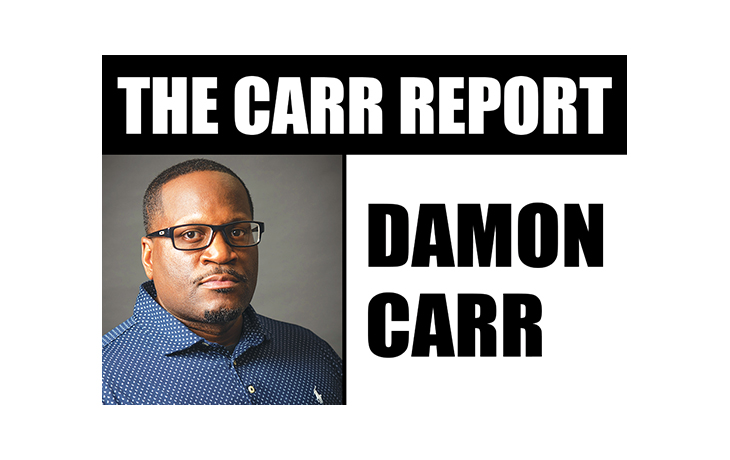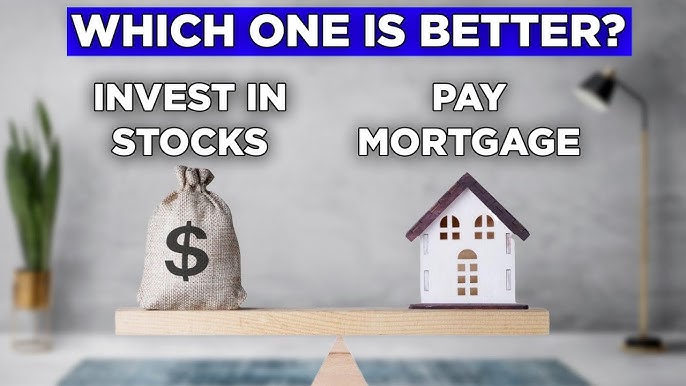When it comes to financial freedom, one of the biggest debates is whether to pay off your mortgage early or invest extra money for higher returns.
On one hand, being mortgage-free sounds like a dream—no house payments, less stress, and complete ownership of your home. On the other hand, investing can provide higher returns over time, helping you build a substantial nest egg.
So, what’s the best move? Let’s break it down and analyze a real-life example to see what works best.

The Goal: Financial Security or Maximum Wealth?
Your choice depends on what matters most to you:
- Financial security—Having a paid-off home means fewer financial worries.
- Maximum wealth—Investing offers the potential for greater returns and long-term growth.
- A balanced approach—You can do both by following a structured plan.
Both paths can lead to financial success, but your risk tolerance, lifestyle goals, and long-term strategy determine which is best for you.
A Real-Life Comparison: Pay Off Mortgage vs. Invest
To better understand this decision, let’s compare two homeowners with identical financial situations but different strategies:
Scenario Details
- Home Price: $400,000
- Mortgage Term: 30 years
- Interest Rate: 6 percent
- Extra Cash Available: $500/month
- Investment Return: 10 percent annually
- Timeframe: 17 years
Scenario 1: Paying Off the Mortgage Early
- Instead of making minimum payments, this person pays an extra $500 per month toward the mortgage.
- Instead of 30 years, they pay off their home in 19.6 years—over 10 years early!
- Their home appreciates at 4 percent annually, increasing its value to $779,160 after 17 years.
- Once the mortgage is gone, they now have $2,398 in freed-up monthly cash flow.
- Interest savings by paying off home 10-years earlier: $299,775
A penny saved is a penny earned. That’s never been truer than when it comes to eliminating your mortgage. If you pay off your home early and free up a $2,398 monthly mortgage payment, you’ve essentially given yourself a permanent income stream—without needing a massive investment portfolio. To generate that same $2,398 per month using a 4 percent withdrawal rate, you’d need to accumulate an investment portfolio of $719,400. That means paying off your mortgage isn’t just about eliminating debt—it’s about creating financial security that would otherwise take decades of aggressive investing to achieve.
Scenario 2: Investing the Extra $500 Instead
- Instead of paying extra toward the mortgage, this person invests $500/month in the market.
- With a 10 percent average annual return, their investments grow to $266,131 after 17 years.
- However, they still have a mortgage payment for many more years.
- They end up paying $299,775 more in interest over the full 30-year loan.
Fast Forward 10 More Years: Who Comes Out on Top?
Let’s assume in Scenario 1, the mortgage-free homeowner invests 75 percent of their freed-up money for the next 10 years.
Scenario 1: After 10 More Years
- Home Value: $1,153,347
- Investment Growth from Extra Investing: $368,445
- Total Net Worth: $1,521,792
Scenario 2: After 10 More Years
- Home Value: $1,153,347
- Investment Growth from Continued Investing ($500/month at 10 percent for 27 years): $822,851
- Total Net Worth: $1,976,198
Final Difference? $454,406!
The person who focused on investing ended up with a higher total net worth ($1,976,198) compared to the mortgage-free homeowner ($1,521,792). However, that extra wealth came at a cost—they also paid nearly $300K more in interest over time by carrying their mortgage for the full 30 years.
Meanwhile, the mortgage-free homeowner enjoys significantly lower financial stress, having eliminated a major monthly expense over a decade earlier. That freed-up cash flow provided them with more flexibility, security, and financial peace of mind.
The key to success in both scenarios is staying consistent with whichever method you choose. Whether you prioritize investing for maximum growth or eliminating the mortgage early for financial freedom, the real win comes from financial discipline and long-term commitment.
Focusing on Mortgage Payoff: Pros & Cons
Pros:
- Peace of Mind—No house payment means less stress and fewer financial obligations.
- Guaranteed Savings—Paying off debt is a guaranteed financial win—no market volatility.
- Lower Monthly Expenses—Without a mortgage, you need less income to maintain your lifestyle.
- More Flexibility Later—Once paid off, the extra $2,398 per month can be redirected toward investments, travel, or retirement.
Cons:
- Less Liquidity—Your wealth is tied up in your home; you can’t quickly access it in an emergency.
- Missed Market Gains—Investments could have provided higher long-term returns.
- Inflation Risk—Home values rise, but they may not keep up with stock market returns.
Focusing on Investing: Pros & Cons
Pros:
- Higher Potential Returns—Historically, stocks return 8-10 percent. That’s higher than most mortgage rates.
- Liquidity—Investments can be cashed out anytime, unlike home equity.
- Compounding Growth—The longer your money stays invested, the more it grows.
Cons:
- Market Risk—No guarantees! Stocks can crash, and returns aren’t fixed.
- Still Paying the Mortgage—You still owe a monthly payment for 30 years.
- No Immediate Cash Flow Relief—Unlike a paid-off home, investments don’t immediately lower your monthly expenses.
The Smartest Wealth Strategy: Balance Both!
Instead of choosing one path, a balanced approach offers the best of both worlds:
Step 1: Invest up to 15 percent of Your Income for Retirement
- This ensures you secure your future without missing market gains.
Step 2: Pay Off High-Interest Debt First
- If you have credit card debt or personal loans with rates above 10 percent, eliminate them first.
Step 3: Use Extra Cash to Pay Off the Mortgage Faster
- Once your high interest debts are paid and your retirement savings is on track by investing up to 15 percent of your income in retirement plans focus on reducing your mortgage to eliminate financial stress earlier.
The Final Verdict: What’s Best for YOU?
If you want peace of mind, lower monthly expenses, and guaranteed security, pay off your mortgage early.
If you want higher potential returns and liquidity, invest the extra money instead.
If you want both security and long-term wealth, balance both strategies wisely.
At the end of the day, true financial freedom isn’t just about how much money you make—it’s about how much you keep and how well you manage it.
Would you rather be mortgage-free with lower expenses or have a larger investment account?
(Damon Carr, Money Coach and Tax Pro can be reached at 412-216-1013 or visit his website at www.damonmoneycoach.com)


